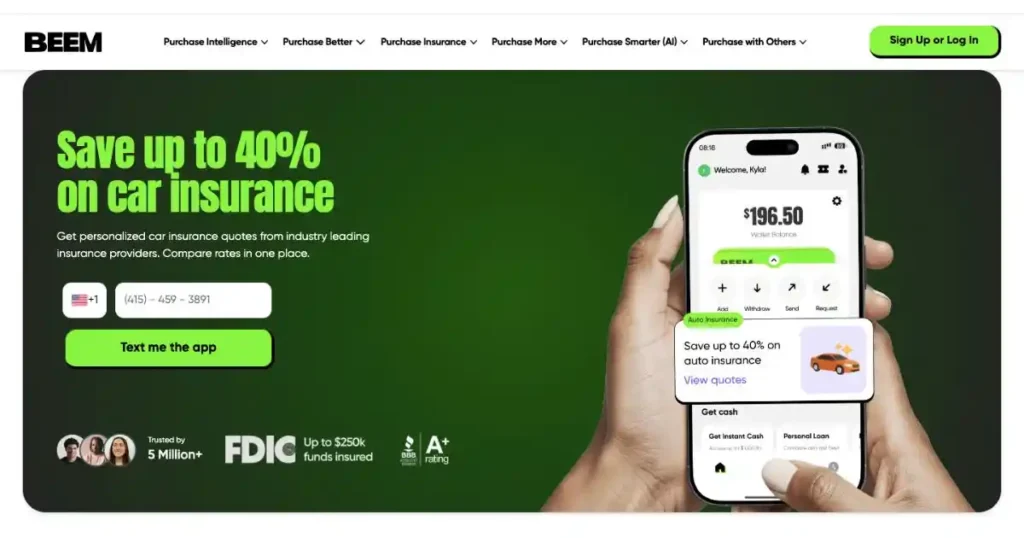Phoenix, the capital of Arizona, is the US’ sixth-most populous city and a beehive of activity. It’s a commercial hub and home to professional baseball, basketball, football, and hockey teams. This also means you’re bound to encounter lots of traffic on its roads.
There are laws governing auto insurance in every state, including Arizona. If you are looking for affordable car insurance in Phoenix, compare rates and coverage options to find the best policy for your needs. Here’s what you need to know about car insurance in Phoenix, AZ. You may choose to raise your coverage limits or buy more auto insurance.
Car Insurance in Phoenix, AZ
The average cost of auto insurance in Arizona is comparable to the national average, but you can find ways to reduce it further. Your options can include switching insurance providers, driving more safely, or seeking discounts. Full coverage auto insurance in Arizona is $2,536, while minimal coverage is $792.
But many variables affect your premiums, including your driving record, the type of coverage, the insurer, your age, gender and your credit-based insurance score, among others.
Read related blog: Car Insurance in Baton Rouge, LA: How to Pick the Right One?
How Much Does Car Insurance Cost in Phoenix?
Phoenix’s auto insurance is $42 more expensive each month than the state average, costing $1,105 for a six-month policy, or $184 per month. Geico offers the lowest auto insurance rates, at $130 a month or $779 every six months. But drivers in Phoenix feel they pay more than the U.S. average, according to various studies.
Cheapest Car Insurance Companies in Phoenix
Geico is the most reasonably priced full-coverage auto insurance provider in Phoenix, charging $130 a month on average, or $779 for a six-month insurance. Here’s a table listing the cheapest car insurance companies in Phoenix, Arizona, along with their average 6-month premiums:
| Company | Average 6-Month Premium ($) |
| Geico | $779 |
| Travelers | $792 |
| USAA | $806 |
| Progressive | $918 |
| State Farm | $948 |
| Nationwide | $1,097 |
| Allstate | $1,573 |
Read related blog: Average Cost of Car Insurance In Texas: How To Get Best Deals
Best Car Insurance Rates in Phoenix
Your auto insurance quotes may vary significantly since each company weighs the elements involved differently. Obtain quotations from as many businesses as you can or let Beem do it for you.
According to estimates, 42% of drivers in Phoenix have minimum coverage. This means you run the danger of having insufficient coverage. You can remedy this by adding extras to your policy, such as uninsured motorist coverage or roadside assistance.
Conclusion
The cheapest insurance provider for one driver may not be for another as auto insurance quotes are highly customized. That being said, Travelers and Geico provide the lowest rates for comprehensive coverage while Geico and Travelers provide the lowest rates for basic coverage. Compare quotes from various companies using Beem for similar coverage types and policy limits as the first step. Also, discuss with an agent or broker for further details.
FAQs (Car Insurance in Phoenix)
Why is car insurance so expensive in Phoenix?
Because every state, and even every city within a state, may have a distinct cost of living, average maintenance prices, crime rate, and other factors, location has a significant influence on state rates. In California, for example, the average rates may be greater than in Arizona because of its dense population, which raises the risk of auto accidents.
Who is the cheapest car insurance provider in Phoenix?
Geico and Travelers offer the most affordable prices for basic coverage. To get the best deal, evaluate quotes from several providers.
How much car insurance do I need in Phoenix?
Different drivers may experience this differently. In Arizona, the average monthly premium for a driver with full coverage auto insurance is $211. The state’s minimum coverage costs roughly $66 a month on average. The monthly cost of auto insurance in Arizona is determined by a number of variables, such as your driving record, age, claims history, policy choices, and the kind and model of your car.















































